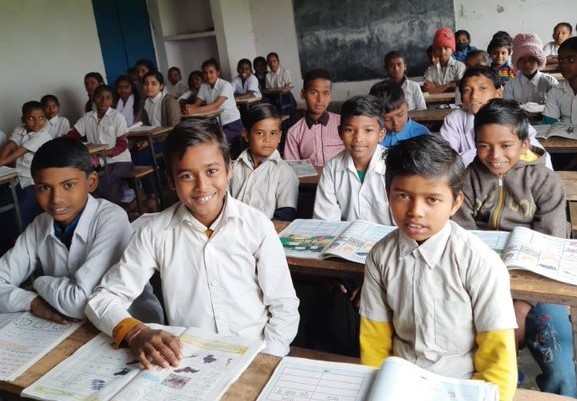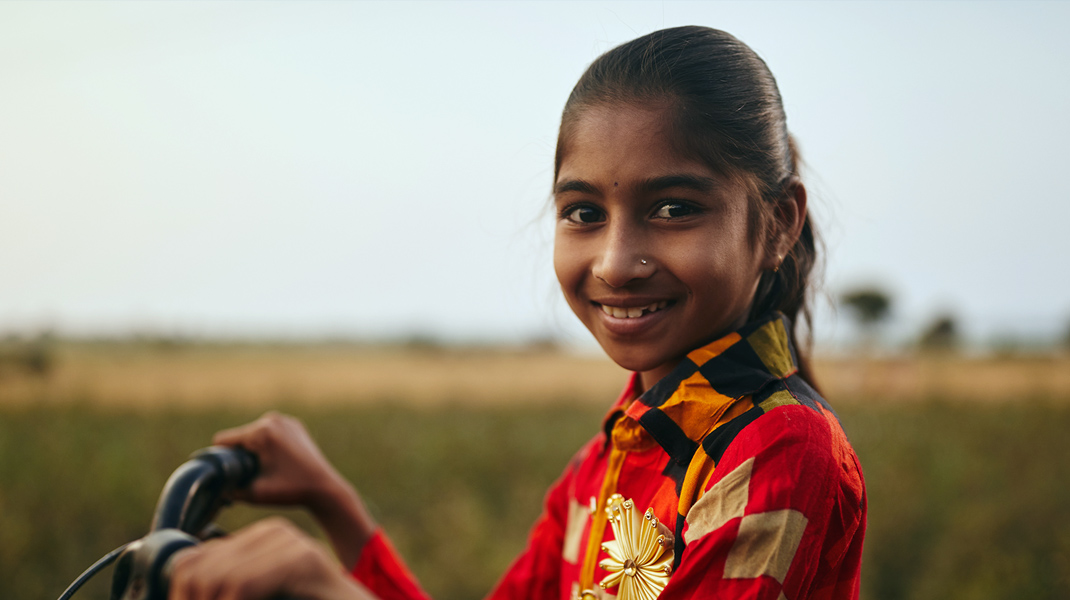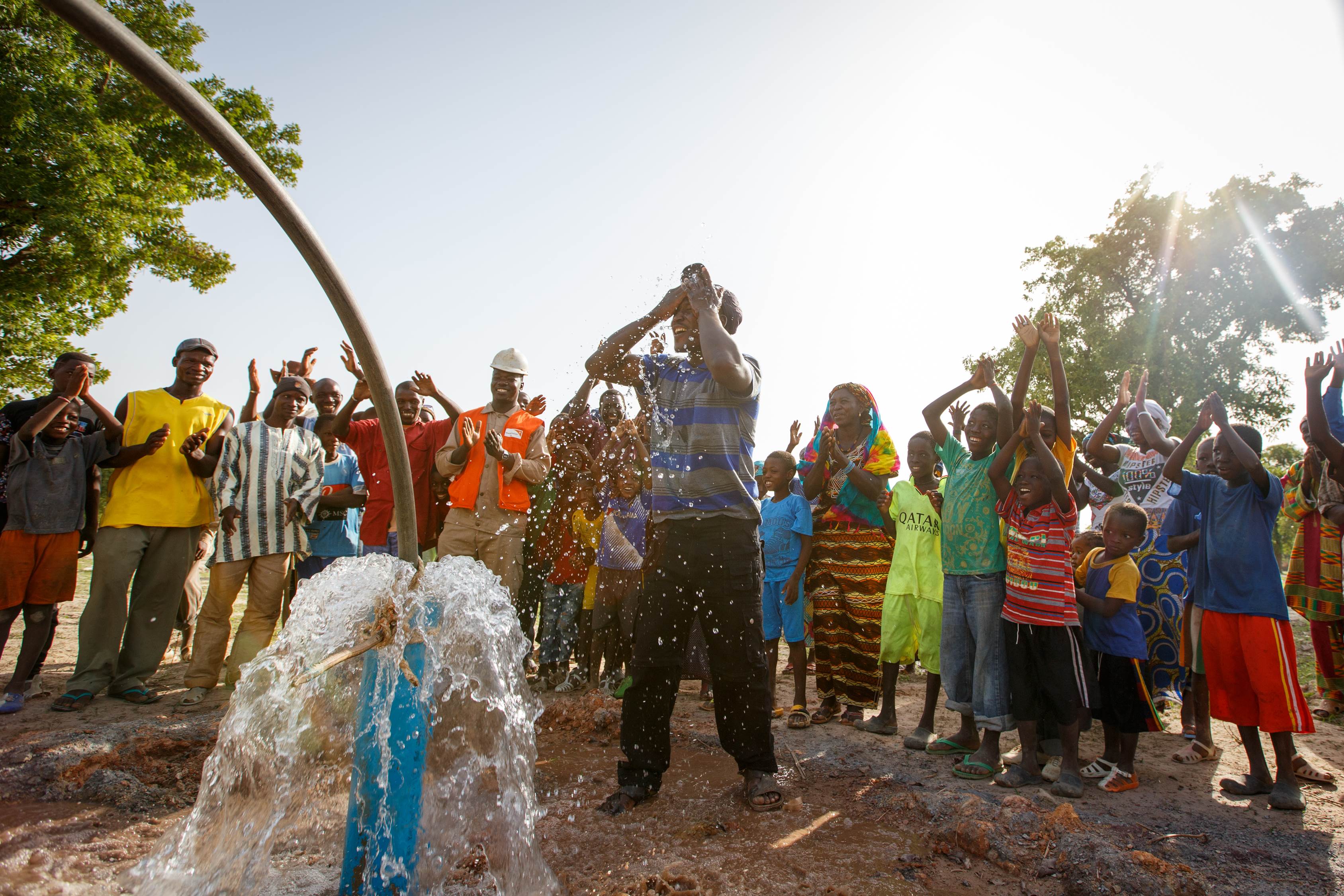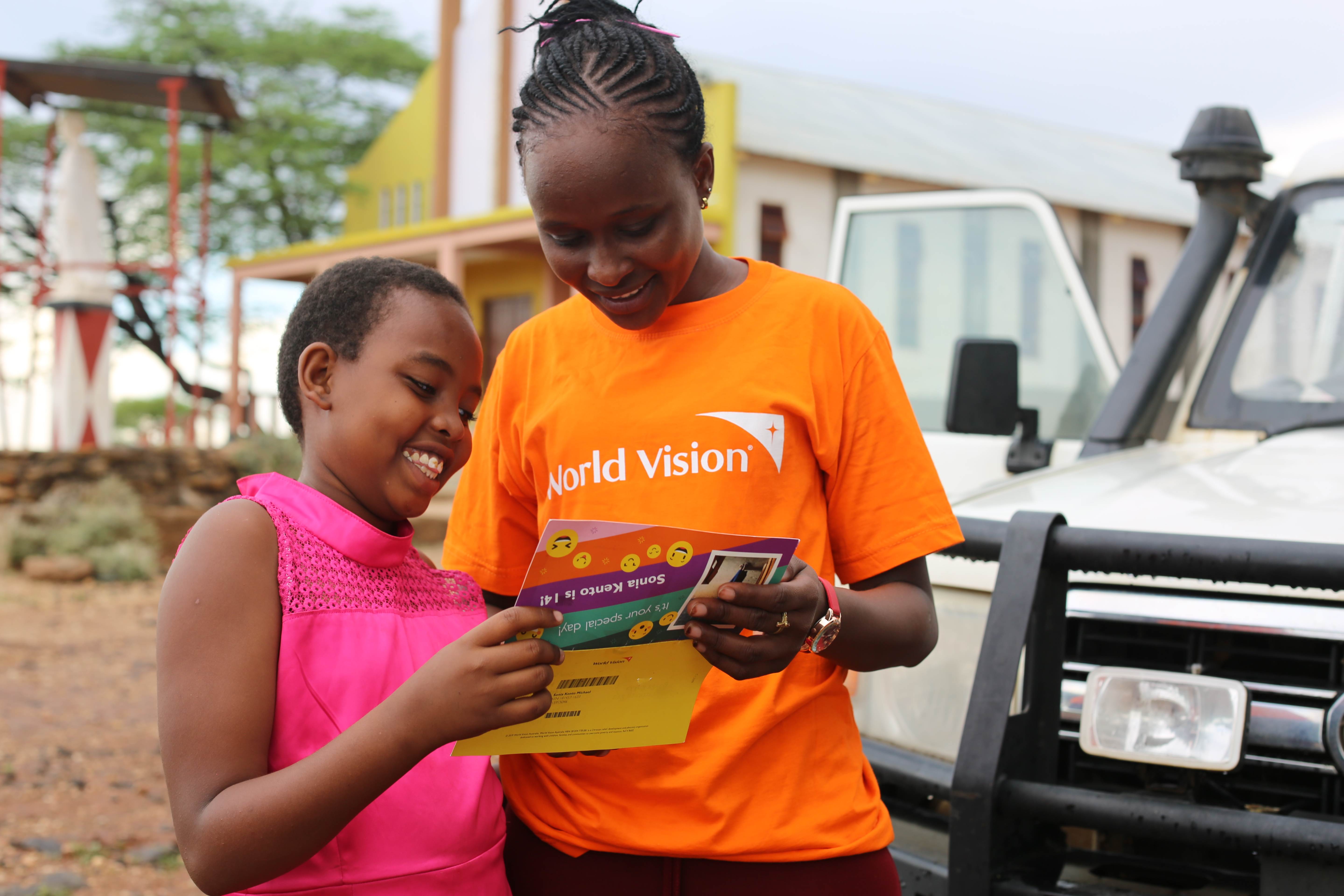
Child Sponsorship transforms communities
Amazing changes, including a 15-year-old fighting child marriage
We partner with communities to ensure that Child Sponsorship tackles the root causes of poverty. We work with local leaders and families to understand where they need support. Together, we focus on helping the most vulnerable children in the greatest need – those at risk of the worst poverty, exploitation, and abuse. Then we create a plan to transform the community into a safe place, where children are cared for and protected, long into the future.
In 2022 World Vision UK’s work in five areas has come to an end but we leave knowing these communities are now ready for the future.
There were many positive outcomes in all these communities in Senegal and India – Mbella, Loul, Vaishali, Patna and Bhojpur.
The transformation in Bhojpur – both at a personal and community level – was amazing.
Children went to bed hungry
We first met the community of Bhojpur, India, in 2005.
Children often went to bed hungry and got sick from drinking unsafe water. The quality of education was poor and many parents couldn’t afford to send their children to school. Children were needed to add to the family income, so many became shepherds or rural labourers. Lack of employment meant that debt, child marriage and migration were big issues.
Men’s views were considered more important than women’s, and parents gave their sons preferential treatment over their daughters. Domestic violence was a problem.
There have been floods in four separate years, which wiped out farmers’ incomes and food supply.
Lives have dramatically improved
Thanks to sponsors’ support, families in these communities have been able to transform their lives.
By focusing on nutrition, clean water, education, tenant farming, farmers’ cooperative, child rights and protection, the situation has dramatically improved.
No to child marriage
Children’s confidence increased due to leadership development activities and child rights’ knowledge, as Khushboo can testify, pictured here enjoying school with her friends. A sponsored child and an active member of a children’s club, her parents were forcing her to get married at just 15.

She had attended World Vision programmes and knew her rights, so she told World Vision staff and the Child Protection Unit.
Government officers counselled her parents against child marriage, who finally agreed to cancel her marriage, which was a week away from becoming official.
Now Khushboo continues her studies. She says, “I’m one of the proactive children club members and the inspiration for all other children in our community. It helped me to overcome this critical situation.”
An official said, “It was indeed a very big impact on our community. It was possible by the challenging attitude of Khushboo and the intervention of officers. I affirm the community people understood the evil of child marriage and took a vow to say no to child marriage – since then there is no child marriage thus far.”
Astounding changes
We engaged with the community and stakeholders to ensure child wellbeing is a priority for all. As Khushboo’s story illustrates, they made a profound difference to children’s lives.
- Child Protection Units were formed to ensure all children are cared for and that abuse cases are dealt with, in partnership with authorities
- children groups were started, helping increase child resilience, as they met for life skills training using activities, games, and drama
- children have learnt how to value and protect themselves, and their friends, and to make a difference in their communities.
The results have been astounding.
School enrolment increased among 6 to 11-year-olds from just over 59% to over 90%.
12 to 17-year-olds enrolled in school improved from just over 54% in 2008 to over 95% in 2021. The number of girls now enrolled in secondary school is almost 93% – more than boys (88%).
Crucially, there is no discrimination between boys and girls within the family and the community.

Health awareness makes an impact
We promoted awareness of:
- childcare, including exclusive breast feeding
- recipes for locally available nutritious food
- helping parents know how to access government health services.
A mother shared the difference it’s made: “Mothers are aware of the nutrition needs of their children; they gained the knowledge of feeding nutritious food and hand wash practices. The changes seen in our community is due to awareness created by the World Vision programme and the services of [government] community health workers.”
Muna (pictured with his family) is now a healthy and cheerful nine-year-old boy who attends school. As a severely malnourished baby he was sent to a Nutrition Rehabilitation Centre (NRC) – one of 815 children who were urgently treated and fully recovered. His mother, Sita, says, “My son got rebirth from NRC, I thank World Vision for this great effort.”
Positive changes include a significant reduction of underweight children, an increase in full immunisation, improved drinking water and better sanitation. Other diseases, such as diarrhoea and pneumonia, have decreased and are better managed, thanks to awareness among caregivers.

Empowering people
Projects included:
- the Men Care programme, which reduced gender inequality and domestic violence
- helping communities lead their own development, advocate for better services and claim entitlements
- training vulnerable households in enterprise, and support to start businesses
- savings groups which financially empower women.
All the communities now have updated disaster plans with trained task forces. With almost three quarters of families now part of a savings groups, families’ resilience to shocks such as floods has greatly improved.
No longer in poverty
During the past three years, 450 people from the most vulnerable households were supported with livelihood assistance to help work their way out of poverty. 338 are no longer in poverty.
At the start of the project over 85% would have had to sell assets (for example a cow) to cope with shocks – now that figure is down to just under 14%.
Changes which took place from 2016 to 2019 include:
Domestic violence reduced from 26% to 12.5% thanks to the Men Care programme and Savings Groups.
71% of households now know how to access government welfare schemes, from just over 17% in 2016, while those with access to sufficient credit increased from 22% to almost 75%. Families in Saving Groups increased from 44% to 73%.
Although by 2019 all households that we surveyed told us they had reported sufficient food, this situation changed with the start of the pandemic. Government distribution and relief from different agencies, including World Vision India, have been a great support.
Altogether 450 farmers enrolled in Farmers Producers Collective, helping members receive a fair price.
Vijaya, tenant farmer, says, “My dream became true. I thought I could not replant wheat after it was destroyed by flood but World Vision India assisted with wheat seed to cultivate once again.”
A brighter future
Communities in Bhojpur are using the skills they've learnt through the programme, the experience they've developed, and the resources they now have to move forward to a brighter future.
There are many other communities across the world who would like to partner with us. Can you help by sponsoring a child?



